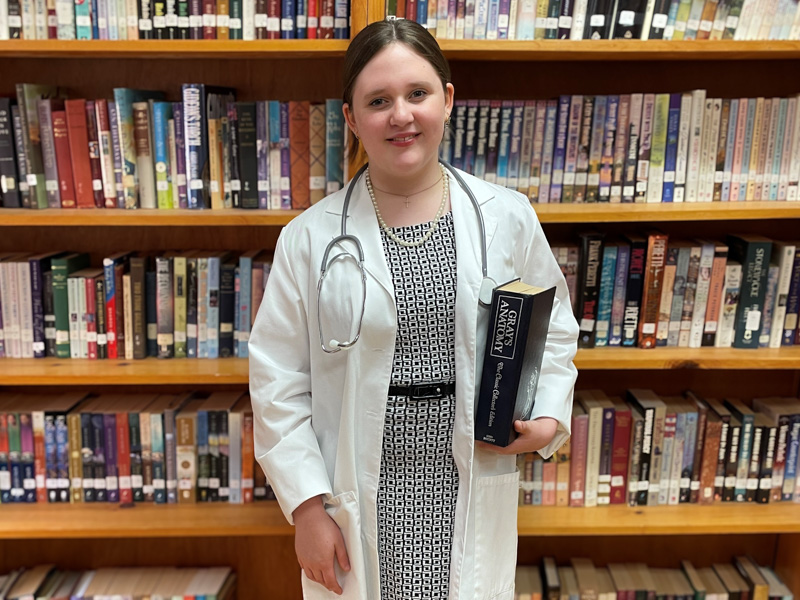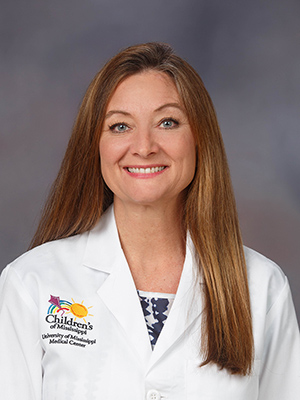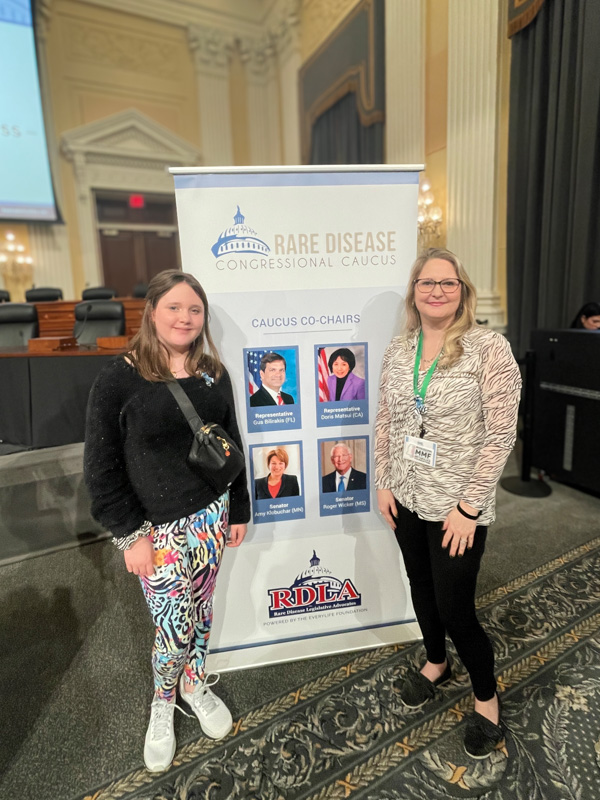Children’s of Mississippi patient family advocates for rare disease research

When Emmalyn Hudson had a history project, she wrote about and portrayed Dr. Virginia Apgar.
The choice of Apgar, originator of the Apgar score that evaluates newborns, was meaningful, said Shannah Hudson of Columbus, Emmalyn’s mom.
“Her work was the beginning of newborn screening, and without that, Emmalyn might not be here,” she said.
Hudson, founder of Mississippi Metabolics Foundation, was among advocates for legislation creating a Mississippi Rare Diseases Advisory Council at the University of Mississippi Medical Center. The council, which will include geneticists, physicians, representatives of pharmaceutical, insurance and biotechnology industries, and patients and their families, will work to improve care for those with rare diseases.
“An estimated 300,000 Mississippians are living with rare diseases,” she said, “and some may not be counted in that data or are undiagnosed.”

Nurse practitioner Dr. Michelle Tharp, a member of Emmalyn’s genetics care team, has high hopes for the council.
“The Mississippi Rare Diseases Council will be instrumental in improving health outcomes for the rare disease community living in Mississippi by providing education for government agencies, legislators, medical professionals and the public about rare disease,” she said. “The council will be a strong voice in state government, which is critical to making recommendations to state leaders on rare diseases as a public health issue and policy recommendations. Unique barriers and needs of the rare disease will be identified and the rare disease council will be vital to improve access to care, education, and essential resources.”
Hudson hopes the council will provide hope for those diagnosed with rare diseases and strengthen newborn screening.
“Emmalyn’s story is one of hope,” she said. “She’s definitely a success story for newborn screening.”
Born five weeks early, Emmalyn had an Apgar score of 8 and went home at 5 pounds, 7 ounces. On Emmalyn’s second night home, Shannah got a call from her local hospital, telling her that Emmalyn had tested positive for a rare genetic disorder and that she needed to pack a bag as her baby needed to go to the state’s only children’s hospital, Children’s of Mississippi.
“That call totally shook our world and turned everything upside down,” Shannah Hudson said.
The geneticist at Children’s of Mississippi, Dr. Hans-Georg Bock, met the Hudson family at the doors of the pediatric emergency department.
“He took the baby carrier holding Emmalyn, and said, ‘Mom, come with me,’” Hudson said. “He was one of a kind.”
Emmalyn was diagnosed with the rare genetic condition Glutaric Aciduria/Acidemia Type 1 (GA-1), a rare heredity metabolic disorder in which the enzyme that helps the body process amino acids is either missing or defective. Because of this, glutaric acid and other substances rise in the bloodstream and in urine.
Children with GA-1 may have larger than average heads at birth, with other symptoms such as muscle weakness, poor appetite and drowsiness following at 2 months to 4 years of age.
Left untreated, GA-1 could result in death.

“Looking back now, the worst phone call we ever received will also be the best call of our lives in that it was what saved Emmalyn's life,” Hudson said. “Without newborn screening and the quick response by her medical team, she could have lost all her motor skills and become completely debilitated or worse, died, due to metabolic stroke and acidosis, encephalopathy, and striatal necrosis. There is still much more to learn about her disorder, many people to educate and inspire, improved protocols to be established, and an eventual cure to be found.”
Emmalyn, 13, is healthy with Children’s of Mississippi care and follows an extremely low protein diet, taking in just 26 grams per day.
“She’s never known any different,” Shannah Hudson said of Emmalyn’s diet. “She eats lots of fruits and vegetables and whole grains, and she knows how many grams of protein are in everything.”
One of Emmalyn’s favorite meals is spaghetti noodles with tomato sauce, which has about 9 grams of protein.
“That means, for the rest of the day, she can only have 17 grams of protein,” she said. “We limit meat since it is high in protein. If she eats high-protein foods, she won’t be able to have enough of it to keep her full.”
Tharp said Emmalyn’s care team regularly monitors her blood levels, prescribes a metabolic medical formula that is free from the amino acids her body cannot tolerate, manages a protein-restricted nutrition plan, and provides emergency treatment with any intercurrent illness.
“Managing glutaric aciduria has become a way of life for Emmalyn,” she said. “Emmalyn has learned to make responsible choices in foods that are free of the amino acids her body is unable to tolerate, read nutrition labels, mix medical formula, and measure supplements.”
Emmalyn is involved in Rare Disease Legislative Advocacy Youth Advocacy Day, where she meets with federal lawmakers to share her rare disease story and discuss legislation to help the rare disease community. She also attends Rare Disease Week on Capitol Hill in Washington, D.C., each year and attends other rare disease meetings throughout the year with her family.
“She is also brilliant, funny, loving, compassionate, beautiful and exceptionally brave,” her mother said.


